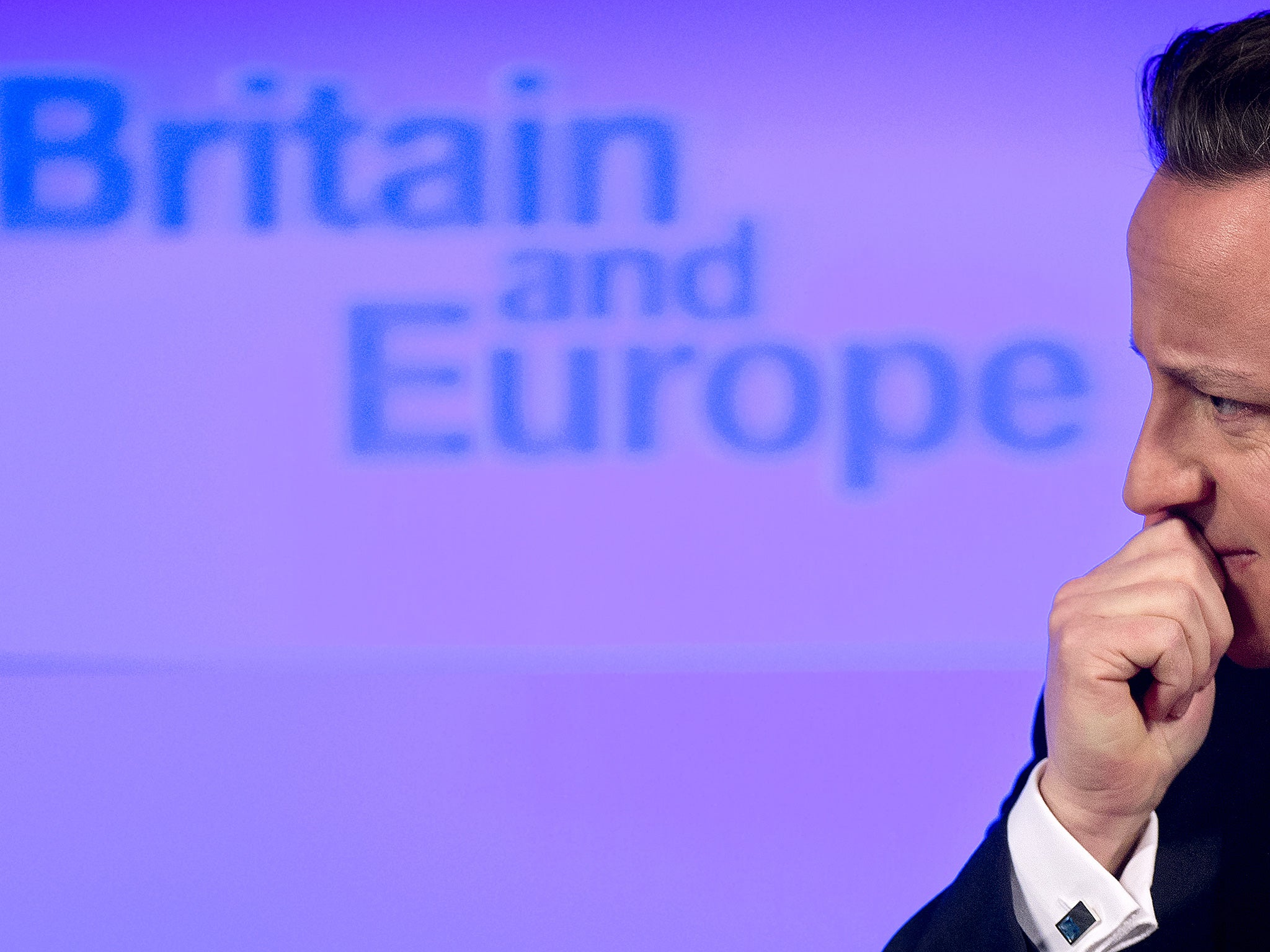EU referendum: Peers back off from demands that 16 and 17 year-olds be allowed to take part
If peers had refused to back down, Westminster could have faced a prolonged session of 'parliamentary ping pong'

Your support helps us to tell the story
From reproductive rights to climate change to Big Tech, The Independent is on the ground when the story is developing. Whether it's investigating the financials of Elon Musk's pro-Trump PAC or producing our latest documentary, 'The A Word', which shines a light on the American women fighting for reproductive rights, we know how important it is to parse out the facts from the messaging.
At such a critical moment in US history, we need reporters on the ground. Your donation allows us to keep sending journalists to speak to both sides of the story.
The Independent is trusted by Americans across the entire political spectrum. And unlike many other quality news outlets, we choose not to lock Americans out of our reporting and analysis with paywalls. We believe quality journalism should be available to everyone, paid for by those who can afford it.
Your support makes all the difference.A major obstacle to David Cameron’s hopes of staging his promised referendum on European Union membership next summer was removed last night when peers backed off from demanding that 16- and 17-year-olds should be allowed to take part in the historic vote.
An opposition attempt to enfranchise younger voters was narrowly defeated in the House of Lords – a month after the upper chamber supported the move by a large majority.
MPs have already voted three times for the age to remain at 18.
If peers had refused to back down, Westminster could have faced a prolonged session of “parliamentary ping pong”, threatening the Prime Minister’s hopes of getting the EU Referendum Bill on the statute book by Christmas. It will now receive Royal Assent this week.
The call for registered 16- and 17-year-olds to be given a referendum vote was rejected by 263 votes to 246, a majority of 17. Last month, peers backed a lower voting age by a majority of 82.
Ministers had argued the move would cost £6m and threatened to invoke “financial privilege”, which gives the Commons supremacy over issues of public money.
The Justice Minister, Lord Faulks, told peers: “We don’t believe it is appropriate to lower the voting age to 16 and even if it were, this Bill wouldn’t be the place to make such a change.” He said the line over the voting age had to be drawn somewhere, and ministers believed 18 was “logical and consistent”
But the Labour peer Baroness Morgan of Ely argued that the referendum’s unique circumstances offered a chance to involve more teenagers in “one of the greatest political questions which will be put to this country this century”.
She said: “Young people are the future of this country – this is their one chance to have a say in the country’s relationship with the EU. It’s an exceptional vote.”
The Government had been preparing for a trial of strength between the Lords and the Commons, setting aside time in the parliamentary calendar for the dispute to be settled before Christmas.
But peers backed off, with around 50 appearing to switch sides in the face of a fresh constitutional clash between the two Houses. Mr Cameron will travel to the EU summit in Brussels on Thursday for detailed talks with the bloc’s 27 other leaders on his demand to renegotiate Britain’s relationship with the EU. Donald Tusk, the president of the European Council, has set a target of February for agreement to be reached on the subject.
If that can be achieved, the way would be clear for Mr Cameron to hold the membership referendum next summer, although he has only promised to call the vote by the end of 2017.
After the Lords vote was announced, Mr Cameron tweeted: “A key manifesto commitment delivered as the EU Referendum Bill clears Parliament. Voters will have an in/out choice before the end of 2017.”
He received a reminder of the potential hostility he could face to any deal as MPs said his proposals “will not deliver the legally binding and irreversible agreement leading to reform of the EU, nor a fundamental change in the UK’s relationships” he had pledged.
The European Scrutiny Committee said voters in the referendum should be made aware there is no certainty of any agreed reforms actually being implemented.
In a critical report, it attacked the “reactive and opaque” handling of the renegotiation and warned that “presenting Parliament with a ‘fait accompli’ could give rise to legitimate concerns about the accountability and transparency of both the process itself, and its outcome”.
Subscribe to Independent Premium to bookmark this article
Want to bookmark your favourite articles and stories to read or reference later? Start your Independent Premium subscription today.
Join our commenting forum
Join thought-provoking conversations, follow other Independent readers and see their replies
Comments